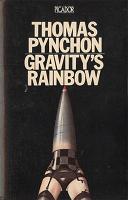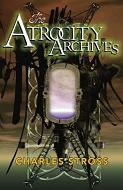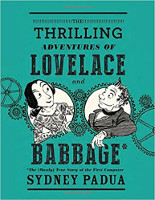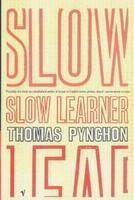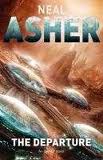 Neal Asher is an English SF writer, mainly known for his Polity and associated Agent Cormac series, with big monsters, bigger spaceships, and even bigger battles. For his new Owner series, of which The Departure is the first offering, he has taken a different approach from his normal large-brush Space Opera; with the initial setting extrapolated from today's State Of The World, no aliens, and, most shockingly, none of his trademark monsters/monsterous fauna.
Neal Asher is an English SF writer, mainly known for his Polity and associated Agent Cormac series, with big monsters, bigger spaceships, and even bigger battles. For his new Owner series, of which The Departure is the first offering, he has taken a different approach from his normal large-brush Space Opera; with the initial setting extrapolated from today's State Of The World, no aliens, and, most shockingly, none of his trademark monsters/monsterous fauna.
The book kicks off with Alan Saul, the main protagonist, finding himself in a 'plastic shipping crate moving on the conveyor to Loading Hopper One of the Calais commercial incinerator'; with no memory of who he is beyond his name, and no recollection of what he's done to have ended up at the very wrong end of the system. Still, he has a computer in his skull, and a piece of 'comlife' (essentially an AI) on Govnet looking out for him, which gives him a headstart over nearly everybody else.
The world he finds himself in is, to put it mildly, not in a good state. It is grossly overpopulated (a few billions more than Earth really can support), so it will take mega-death just to get Earth back to a sustainable footing. To make things worse resources are focused on the elite of the Inspectorate world government, the Committee and its Chairman for liftime (essentially we have a centralised World Dictatorship).
Zero-Asset Citizens are rioting as they are starving; and the ruling classes are discussing how to deal with them; suggestions are to sector them into specific areas, of taking away what little food and social security they still get, or of turning off power and water for them. All a little close to home – some of the arguments and rhetoric is acutely mirrored in the contemporary press as I write this.
Alan sets off with the minor targets, fully formed there in his mind, of toppling the Committee, of killing his Interrogator (whose face he remembers clearly, for some reason), and of removing the threat of the world-spanning Argus satellite surveillance and orbital laser network. Not bad for a have-not with no memories who finds himself on the conveyor belt to the incinerator...
There is a 2nd thread, told in parallel, playing in the Antares Mars colonny, which has just been informed by Earth that there is no more money for further supply shipments, thus sentencing the staff to slow, drawn out death. The thread describes the fight of Val, the base's technical director and some of her lieutanant against the local Political Officer and his Inspectorate Enforcers.
Each chapter of the book starts with an information dump; outlining the history of the world the story plays in, some of the backstory, plus some philosophy (of Asher's?) which informs parts of the story. Here's a typically joyful titbit from chapter 21:
"A belief was once prevalent in ‘modern’ societies that the killer of humans, the murderer, is an aberration. At least this was what the rulers wished their subjects to believe, though, as they ordered their soldiers to war, they knew that the veneer called ‘civilization’ was as thin as whatever ideology they themselves espoused. The truth is that an aversion to killing anyone outside immediate family is a product of societal indoctrination (and then only in that slightly more than half the population who are not sociopaths), whilst within immediate family it is merely the product of that contradiction in terms called ‘genetic altruism’. It is in fact a harsh reality that he who believes killers are an aberration is also he who has the boot planted firmly on his neck; whilst amongst those who rule the aberration is the one who is not a sociopath, and therefore reluctant to kill."
The book, in line with that, has a general disregard for life. There is, even more than usually in Asher's books, constant and ceaseless killing (Saul's repeated reference to the 'Manswarm' and of the billions which will need to die anyway just fit that picture and approach).
And whilst the technology is recognizable from today's view point – we have manned spaceflight, brain/computer interfaces, fusion power – we also seem to have absolutely huge advances in medical (especially surgery) areas, and special nerve-induction fields (and guess what kind of use the Enforcers and Interrogaters these put to. yup).
The story itself is either a preparatory story arc leading up to an event hinted at by the title of this initial book in the series (and that's all the spoilers you'll get from me); or, a bit like history, is simply one damn battle after another; one description (quite graphic, at most times) of killing following the next. We have the usual long drawn out battle/conflict reports we are used to from Asher, the main difference here is that the tech is a bit smaller and more 'realistic' than usual. Oh, and that the monsters are all human...
This struck me very much as a book of two halves (I seem to hit quite a few of these recently). The first half struck me as slow, ponderous scene setting before the actual story and overall story arc begin to actually develop.
But, whilst I didn't get caught at all by the first half, the 2nd made up for this to some degree, and it ended in a way that makes me now look forward to the next book (rumoured to be called Zero Point), so stick with it, it does get better!
More Neal Asher
Title: The Departure
Series: Owner
Series Number: 1
Author: Neal Asher
Reviewer: Markus Thierstein
Reviewer URL: http://thierstein.net
Publisher: Tor
Publisher URL: http://www.panmacmillan.com
Publication Date: Sept 2011
Review Date: 110905
ISBN: 9780230746725
Price: UKP 12.99
Pages: 498
Format: Trade Paperback
Topic: SF
Topic: Dystopia
Thanks to the publisher for the proof copy.
